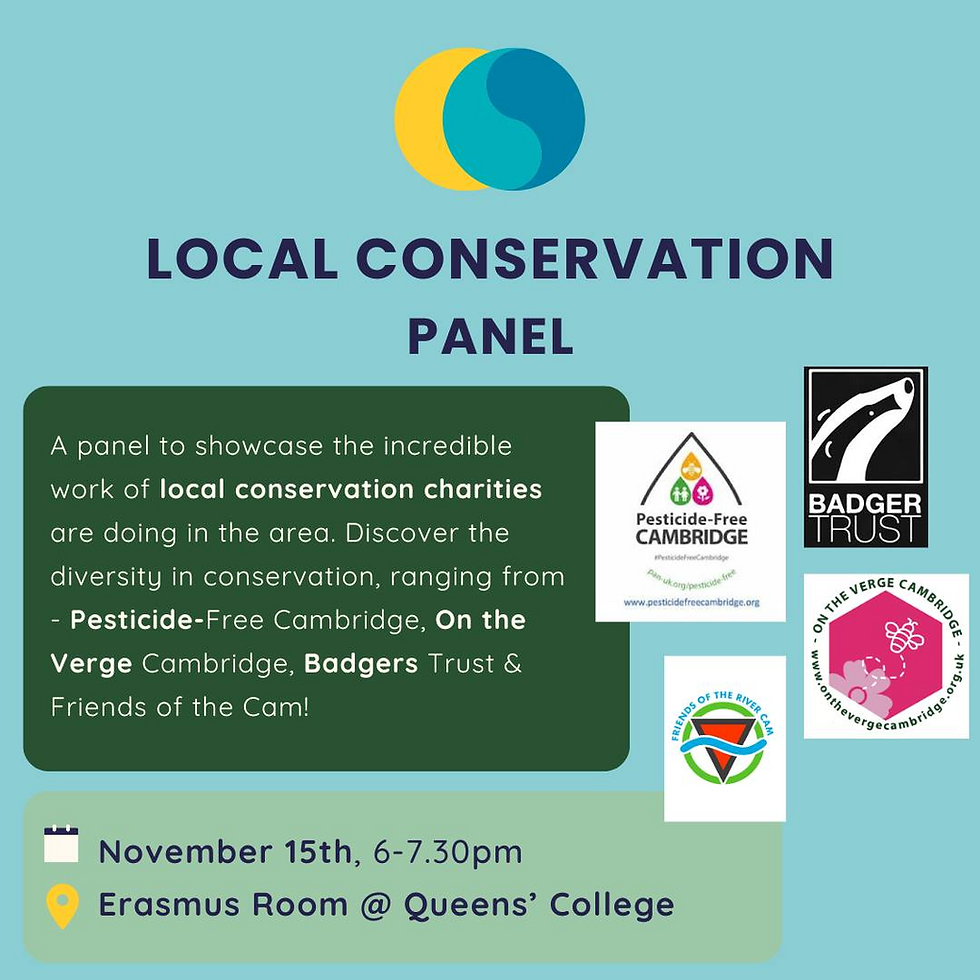PFC/More Than Weeds - pavement plants event in Arbury
- Pesticide-Free Cambridge
- Jun 24, 2022
- 2 min read
Updated: Nov 4, 2022
On Saturday 25 June, Pesticide-Free Cambridge, together with More Than Weeds, celebrated Cambridge’s pavement plants. Often dismissed as weeds and very often sprayed with herbicide and killed off as part of the city council's routine operations, these plants not only decorate our pavements, paths and roads but they also provide an important food sources for our insects many of which are in steep decline. Many are also key components in the culinary and herbal medical history of Britain. Now, of course, the council has committed to going herbicide-free across the city by the end of 2022, and has already began herbicide-free trials in the wards of Arbury and Newnham. These photos show Arbury residents proudly showing off the flowers that now line their street. We have:
Smooth Hawksbeard - high on the list of flowers visited by pollinating insects, especially bees.
Valerian - not only popular with insects but historically it has been used as a sedative and to help with anxiety or depression, sharing the same etymological root as valium.
Hollyhocks - not only do their size and colour beautifully decorate any street, all parts of this flower are actually edible. They are frequently visited by bumblebees and host large numbers of tiny (harmless) weevils.
Yellow fumitory - flowers from May to October providing nectar over a good long period, this is also evergreen and thrives in shade.
Pineapple Weed - crush the flowers and you can smell pineapples or chamomile. Can be used raw in salads or made into tea.
Prostrate Knotweed - has been used as an anti-inflammatory.
Opium Poppy - it is legal to grow these in your garden! Though not a native species, like the Field Poppy, this is still very attractive to pollinators.
Purple Toadflax - provides nectar and pollen for many insects and the leaves are the main food source for the Red Data Book moth, the stunning Toadflax Brocade, see the caterpillar photo.
Lupin - not only great for pollinators, aphids and ladybirds, lupins are legumes and fix nitrogen into the soil.
Many more were found - Pellitory-of-the-wall, Canadian-fleabane, Wood Avens, Petty Spurge, Mediterraean Spurge, Field Poppy, Tree Germander, Prickly Lettuce, Ivy-Leaved Toadflax and Herb Robert.
None of these plants blocked access to the pavement or presented a problem to those with limited mobility. Should they do so, naturally it would be important to cut them back.
Many thanks to More Than Weeds for identifying the plants and providing information about their use.
To comment, go to original FB post - https://www.facebook.com/permalink.php?story_fbid=pfbid02HqosGCzoEw22Z7NmPMBMzPtd45p3NUh4Pt4xKiNA4LZF8oSuwwJv3Mqhkjw57pY5l&id=105536024678396&__cft__[0]=AZWVl3UL7oBmVTw_IXAN1s1cFofmQuPQs2e46G_9dnnf20-QD1L7LwDlS_5KIWshSiJpkj_M96ttbemCHLylKea9sJT7lQFty110jEV-kiZTUypGlyZHlNos8dmP_PkFAQFCEljA_WVmjxSfiwj3IoYJAny8WmIaQ7_Byql9o3O1uYNJtx_VdvyyouGc5bpTuQQ&__tn__=%2CO%2CP-R














Comments